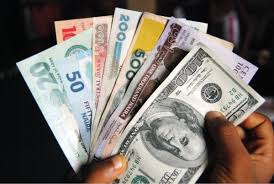The Nigerian naira is facing significant pressure in the black market, trading at N1,660 per U.S. dollar, despite recent actions by the U.S. Federal Reserve. On Thursday, the local currency remained unchanged against the dollar and the British pound, which traded at N2,220 per pound.

The stability in the parallel market comes at a time when the U.S. dollar has gained strength, supported by recent moves by the U.S. central bank. Despite cutting interest rates, the Federal Reserve’s signals regarding future rate hikes have strengthened the dollar.
### Naira Struggles Despite U.S. Rate Cut
Even though the U.S. Federal Reserve recently lowered its interest rate by 50 basis points to a range of 4.75% to 5.00%, the naira continues to face downward pressure. Nigeria’s Central Bank (CBN) has attempted to stabilize the currency, but the naira has struggled due to a combination of rising demand for foreign exchange and low oil production, which is one of the country’s main sources of foreign currency.
With increased demand for foreign exchange in Nigeria, especially for purposes like vacations, fuel imports, and overseas tuition, short sellers are pushing the naira towards a key support line of N1,600 in the black market. This demand continues to weigh on the naira, making it difficult for the currency to recover.
### Impact of U.S. Dollar Strength
The U.S. dollar gained more than 50 basis points following the Federal Reserve’s latest rate cut. Even with the rate cut, the central bank’s less dovish signals on future hikes supported the dollar’s upward momentum.
Federal Reserve Chairman Jerome Powell indicated that the central bank would be cautious in cutting rates further, as inflation continues to ease. Powell pointed out that while inflation has decreased, the U.S. labor market remains strong, and the Fed wants to maintain this balance with its monetary policy.
As a result, the Fed’s benchmark rate range was reduced, causing some market turmoil. However, Powell stated that the U.S. is unlikely to return to the ultra-low interest rates seen during the pandemic, signaling that the Fed’s neutral rate will remain higher than before.
### Future Outlook for the Naira
The pressure on the naira in the black market could continue as demand for the dollar rises. Factors such as foreign exchange demand for imports, education, and travel are likely to persist. Moreover, Nigeria’s oil production levels remain weak, limiting the country’s ability to earn foreign exchange and stabilize the currency.
Traders expect that the U.S. dollar may weaken in the long term as the Federal Reserve is likely to continue cutting interest rates. However, concerns about potential rate increases in the near future have raised uncertainty, which could affect both the naira and other global currencies.
The naira remains under pressure in the black market as the U.S. dollar strengthens, driven by the Federal Reserve’s monetary policy. While efforts to stabilize the naira continue, challenges such as high demand for foreign currency and low oil production are contributing to its struggles.



